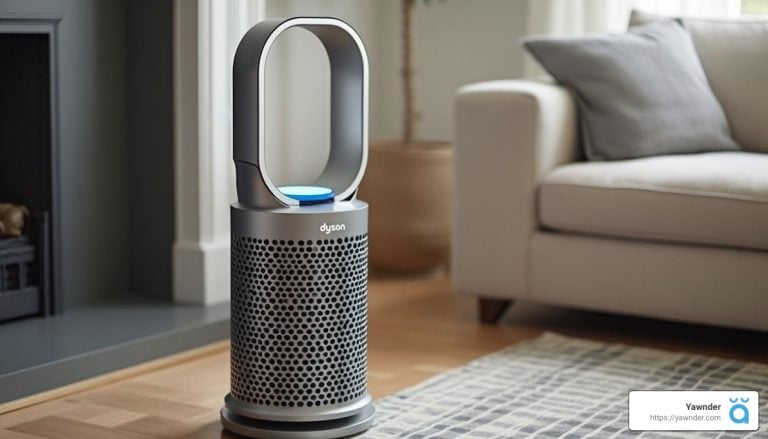Detailed Guide to Comparing Molekule vs. Dyson Air Purifiers
Understanding Air Purification: The Need of the Hour
In our modern world, the quality of indoor air profoundly influences our health and overall well-being. Air purifiers are designed to eliminate harmful particles and pollutants, significantly improving the air quality in our homes and workplaces. With growing concerns surrounding pollution and allergens, making an informed choice about air purifiers has become paramount.
In this guide, we will delve into a detailed comparison of two prominent brands—Molekule and Dyson. Both brands offer unique technologies and features, which means understanding their differences will help you select the best air purifier for your specific needs.
Filtration Technology: Molekule vs. Dyson
Molekule’s Innovative PECO Technology
Molekule air purifiers leverage an advanced technology known as PECO (Photo Electrochemical Oxidation). This groundbreaking approach involves a light-activated nanocatalyst that breaks down pollutants at a molecular level. Molekule claims that their technology not only captures harmful particles but also destroys them. This includes a wide range of contaminants like bacteria, viruses, mold, allergens, and volatile organic compounds (VOCs). Thus, Molekule aims to surpass traditional filters, which might trap particles without completely eliminating them.
Dyson’s Reliable HEPA System
Conversely, Dyson air purifiers utilize a proven HEPA (High-Efficiency Particulate Air) filtration system. HEPA filters are celebrated for their efficiency, capturing 99.97% of particles as small as 0.3 microns, including dust, pollen, and pet dander. Dyson also incorporates an activated carbon filter, specifically targeting odors and harmful gases, thus enhancing its overall filtration capacity.
The decision of which technology is better largely depends on your needs. If your goal is to eliminate a diverse range of pollutants, particularly gaseous compounds, Molekule’s PECO technology may be ideal. However, if you’re mainly focused on allergens and particulate matter, Dyson’s HEPA filter remains a trusted choice.
Room Coverage and Performance
Room coverage is a vital factor when choosing an air purifier. Effective air purification requires adequate coverage for your space.
Molekule is designed to purify spaces up to 130 square feet, while Dyson’s TP02 model can manage areas up to 110 square feet. Both devices can clean the air in their respective areas approximately 4.8 times per hour, a measure known as Air Changes per Hour (ACH).
While these coverage areas can effectively address small to medium-sized rooms, they may not suffice for larger spaces. Therefore, if you’re considering either brand, it’s important to evaluate your room size and possibly look into models that offer higher ACH rates.
Features and Specifications: Smart Technology Comparison
Smart Features
Both Molekule and Dyson come equipped with smart capabilities, but they differ in their functionality and user experience.
Molekule offers an app that enables users to monitor settings, check filter status, and receive notifications. While some users appreciate this connectivity, others have reported that the app’s interface could be more user-friendly and occasionally suffers from connectivity issues.
In contrast, the Dyson TP02 excels with its robust smart features. The Dyson Link app allows app control, and the device also supports voice commands via Amazon Alexa, providing an added layer of convenience. Moreover, Dyson’s built-in air quality indicator offers real-time insights, making it a significant advantage over Molekule’s offering.
Noise and Power Consumption
Noise levels are another critical aspect to consider. The Dyson TP02 operates quietly, making it suitable for bedrooms and smaller spaces. Its quietest setting hovers around 40 dBA, akin to a library’s ambiance.
In comparison, the Molekule Air tends to generate more noise, particularly at higher speeds, with levels reaching around 55 dBA. While still manageable, this may be noticeable in quieter settings.
Regarding energy efficiency, both models aim to be eco-friendly, but Dyson holds a slight advantage in power consumption, which translates to lower operational costs.
Maintenance and Costs: Long-Term Considerations
When evaluating long-term costs, both brands require regular filter replacements, but costs differ significantly.
Molekule Air’s PECO filters need replacement every six months, with a pre-filter change every three months. This can lead to higher maintenance costs over time. Additionally, Molekule’s power consumption is slightly above average.
On the other hand, Dyson’s HEPA filters typically last 12 to 18 months, significantly cutting down on replacement frequency and costs. The energy-efficient design also helps keep operational costs low.
User Experience and Feedback
Customer reviews provide invaluable insights into the real-world performance of these air purifiers.
– Build Quality: Users often commend Molekule for its premium aluminum design, although some feel the performance doesn’t justify the high price.
– Dyson, on the other hand, receives accolades for its modern design and dual functionality as a fan, making it more appealing to diverse users.
In terms of performance ratings, Dyson generally scores better due to its effective HEPA filtration system, which is particularly beneficial for those dealing with allergies. Overall, Dyson tends to record higher satisfaction ratings, thanks to its lower maintenance costs, user-friendly design, and effective air purification features.
Conclusion: Making the Right Choice
Choosing between Molekule and Dyson ultimately depends on your specific requirements. If advanced pollutant destruction is your priority, Molekule’s PECO technology stands out. Additionally, some of its models have received FDA clearance, underscoring their effectiveness in improving indoor air quality.
Conversely, if you are looking for smart features and efficient allergen capture, Dyson proves to be an excellent option. Its user-friendly app, voice controls, and reliable filtration strongly appeal to technology-savvy users.
In essence, understanding your environment and specific needs will guide you toward the right air purifier. No matter which choice you make, investing in an air purifier from either brand can significantly enhance your indoor air quality and promote a healthier living space. For personalized recommendations, feel free to explore our resource sections for insights tailored to your unique situation.

